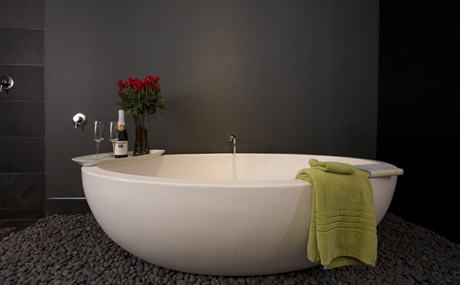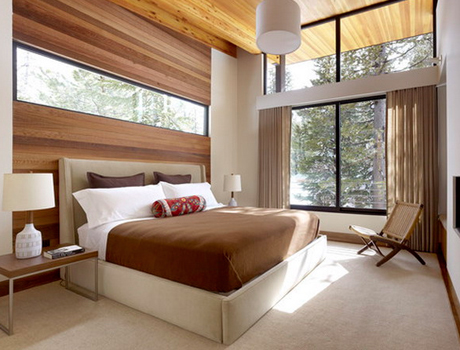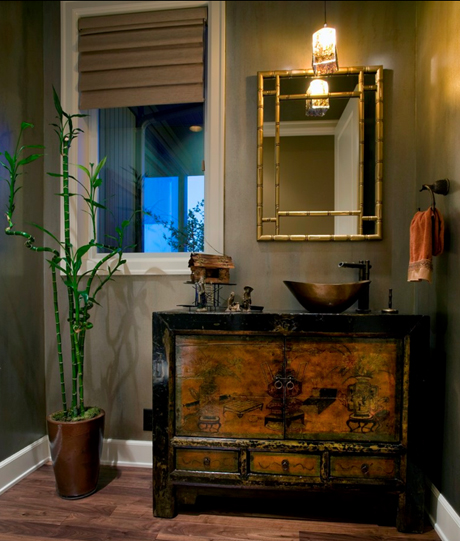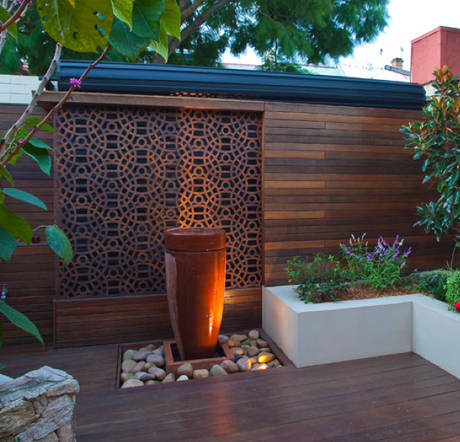Guest Post: In corporating Elements of Feng Shui into your Home
How To Incorporate The Elements Of Feng Shui Into your Home
Incorporating Feng Shui into your interior design brings balance and good fortune to your home. More than just picking attractive furniture and decor, the placement and arrangement of furnishings and accessories, as well as deliberate color combinations, can make a significant difference in the “Qi” or energy of the room.
However, you still want to make sure that your Orange County home is visually appealing and functional, so you will want your Feng Shui interior design to balance the basic beliefs of the Eastern practice along with modern tastes.
Below are a few tips on how to improve the energy in your house and bring luck to your life, while adding the decorating flairs and touches that gives your home personality:
Position Furniture Carefully
This tip is both practical and feng shui-related: careful positioning of furniture improves the energy’s flow throughout the room. Furniture should not prevent free passage through the room as this blocks both your daily path and the Qi from flowing naturally. Ideally, seating areas should be flush with a wall, instead of facing a walkway or another room.
Separate Work and Rest Areas
Avoid setting up a work office in your bedroom. The energy of a work space will prevent you from getting a good night’s sleep if it is set up in the bedroom.
Lighting
Light plays a major role in feng shui, as it is a major source of good energy. Soft lighting is linked with positive energy which wall sconces provide. Without proper illumination, carefully picked color combinations, decor and furniture may not be as effective for a feng shui lifestyle. Our eye tends to be drawn to where the light is shining, so by spotlighting certain objects and areas, you are able to support your intentions. Avoid dark corners, which can absorb and stall the flow of energy, by filling them with a source of soft light.
De-clutter
Clutter is considered to be a major burden in feng shui. De-cluttering is believed to be absolutely fundamental to ensuring balance in the home, as clutter blocks the flow of energy. On a practical level, clutter can lead to increased stress levels.
Remove clutter from all rooms in the house. One of the best places to start is the bedroom, where you want the most relaxation as possible. Create a “keep”, “relocate” and “trash” pile for all the items littered on the surfaces and floors of each room. Then, relocate the items to their proper locations, and throw away the trash. Organize the “keep” items into drawers, shelves or labeled boxes for easy access.
Mirrors
A key accessory in feng shui interior design, mirrors are believed to reflect positive energy and prevent the flow of negative energy. Placement is key, however. Avoid putting a mirror facing the front door, as you don’t want to bounce the positive energy entering the house to creep its way out. Mirrors should also be used sparingly (if at all) in the bedroom. Bedrooms are considered calm spaces with more yin energy; mirrors bring a lot of yang energy, canceling out the calming yin needed in the bedroom.
Live Plants, Fresh Fruit and Cut or Potted Flowers
Indoor plants, floral bouquets and fresh fruit all generate positive energy. Potted plants also represent earth and wood elements (two of the five elements needed for harmony and balance).
However, you should avoid using dried flowers. Dried flowers are considered sources of bad energy in feng shui as they represent something that is dead. Throw away all dead or dying plants, including wilting flowers. The exception is if the dried bouquet is a keepsake from someone dear to you, then the energy associated with it is positive.
Add a Water Feature
Considered a symbol of wealth and prosperity, it is important to incorporate water elements in your feng shui decorating scheme. A water feature is an eye-catching way to add two of the five essential elements of feng shui (wind and water). Whether you choose a water fountain, a water wall or a fish tank, a water feature is a soothing focal point to any room, promoting relaxation. Be careful not to add water features to the bedroom as it can introduce the element of worry.
Mix Up Your Shapes
Each shape represents a different feng shui element: square (wood), round/oval (metal), striped and floral (wood), wavy (water) and pointy (fire) shapes all need to be present in your accessories and decor to ensure balance. Mixing and matching is not only an excellent way to bring harmony into your living space, but it also adds depth and dimension to your interior design.
Choose Colors Carefully
Intentionally choosing the right colors for each room is key in feng shui, as each color and color combination represent different types of energy. Green is linked with hope and nature, yellow with power and red is considered auspicious. Orange helps create an atmosphere of ease and promotes conversation in large groups of people, making it an ideal color for living rooms and other areas where you plan on hosting guests. Blues and greens can also help promote a calm atmosphere, which are perfect for bedrooms and other locations designed for relaxation and rest.
With these simple feng shui tips, you can improve balance and harmony in your home and life all without having to invest in crazy interior design schemes or busts of Buddha and other auspicious statues. Just keep in mind the importance of the flow of energy and incorporate a few well-chosen and well-placed accessories to fully reap the benefits of feng shui.
Marcela De Vivo is a freelance writer, yoga enthusiast and business owner in the Los Angeles area. In addition to incorporating feng shui into her yoga and meditation room, she also includes the elements of feng shui throughout the rest of her home. Follow her on Pinterest today!









